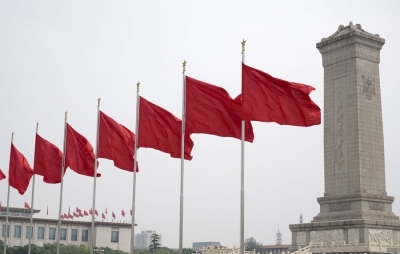By Sanjeev SharmaNew Delhi, Feb 17 : China has a long record of violating, disregarding and evading World Trade Organization’s (WTO) rules to achieve its industrial policy objectives.
China has sought to frustrate WTO oversight mechanisms, such as through its poor record of adhering to its WTO transparency obligations, as per 2021 USTR Report to Congress on China’s WTO Compliance.
After 20 years of WTO membership, China still embraces a state-led, non-market approach to the economy and trade, despite other WTO members’ expectations – and China’s own representations – that China would transform its economy and pursue the open, market-oriented policies endorsed by the WTO.
In fact, China’s embrace of a state-led, non-market approach to the economy and trade has increased rather than decreased over time, and the mercantilism that it generates has harmed and disadvantaged U.S.companies and workers, often severely, as per 2021 USTR Report to Congress on China’s WTO Compliance.
When China acceded to the WTO, it voluntarily agreed to embrace the WTO’s open, market-oriented approach and to embed it in China’s trading system and institutions.China also agreed to take on the obligations set forth in existing WTO rules, while also making numerous China specific commitments.As we previously documented, and as remains true today, China’s record of compliance with these terms has been poor, the report said.
For nearly two decades following China’s accession to the WTO, a variety of bilateral and multilateral efforts were pursued by the US and other WTO members to address the unique challenges presented by China’s WTO membership.However, even though these efforts were persistent, they did not result in meaningful changes in China’s state-led, non-market approach to the economy and trade.
“At times, the US did secure broad commitments from China for fundamental shifts in the direction of Chinese policies and practices, but these commitments were unenforceable and China repeatedly failed to follow through on them.Over time, moreover, commitments from China became more difficult to secure,” the USTR said.
At the WTO, the US brought 27 cases against China, often in collaboration with like-minded WTO members.We secured victories in every case that was decided.
Still, even when China changed the specific practices that we had challenged, it did not typically change the underlying policies, and meaningful reforms by China remained elusive.China has not yet implemented some of the more significant commitments that it made in the Phase One Agreement, such as commitments in the area of agricultural biotechnology and the required risk assessment that China is to conduct relating to the use of ractopamine in cattle and swine.
China has also fallen far short of implementing its commitments to purchase US goods and services in 2020 and 2021.(Sanjeev Sharma can be reached at [email protected])san
“At times the US did get large-scale commitments from China to fundamental changes in the direction of Chinese policies and practices, however these commitments were not enforceable and China often did not follow through on the commitments.In the course of time promises from China become more difficult to obtain,” the USTR said.At the WTO the US brought 27 cases against China and often in collaboration with similar WTO members.We won victories in all cases that were resolved.
Even when China changed its practices we had challenged but it didn’t usually alter the policies that underpinned them, and significant reforms from China were elusive.China has yet to implement certain of the more important commitments they signed in the Phase One Agreement, such as commitments in the field of biotechnology in agriculture, and the mandatory risk assessment China will conduct with regard to the use of ractopamine in cattle and swine.
China has also come short of fulfilling its commitments to purchase US products as well as services in 2020 and 2021.(Sanjeev Sharma can be reached at [email protected])







